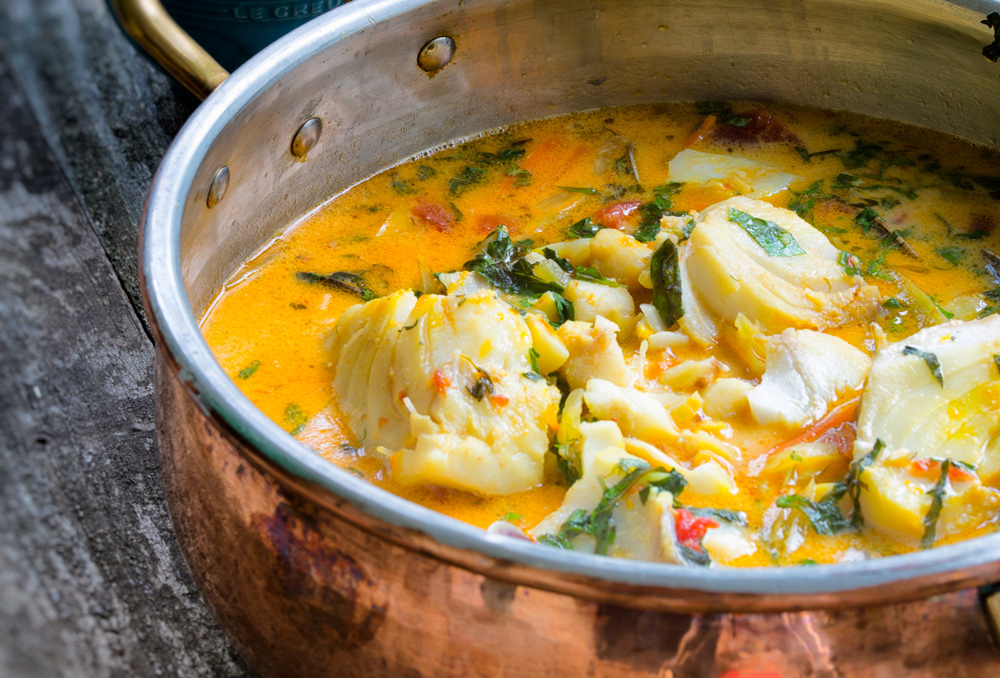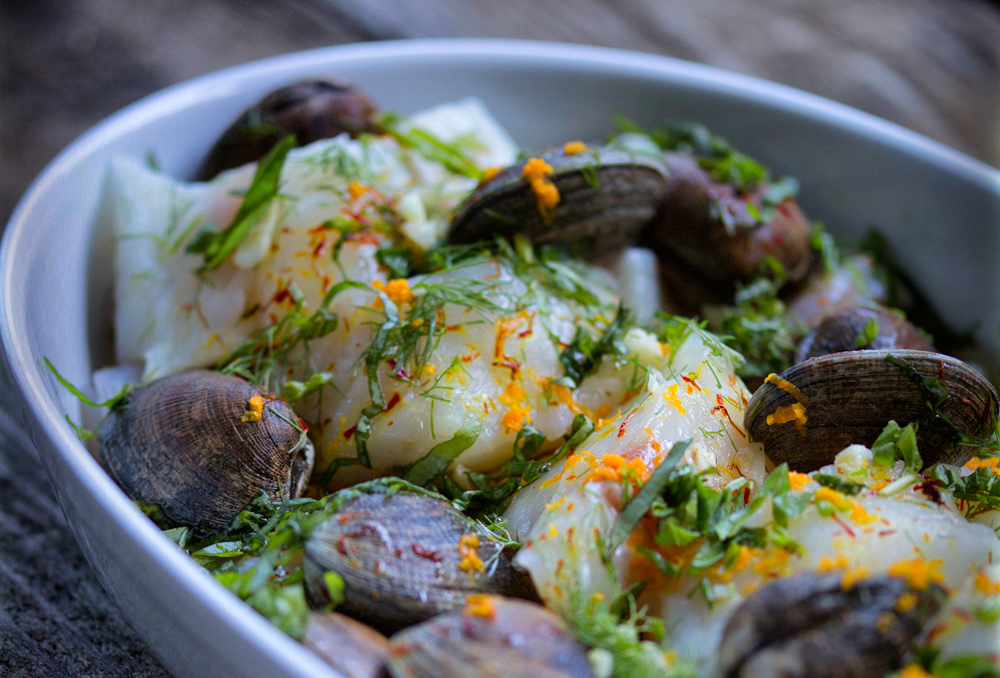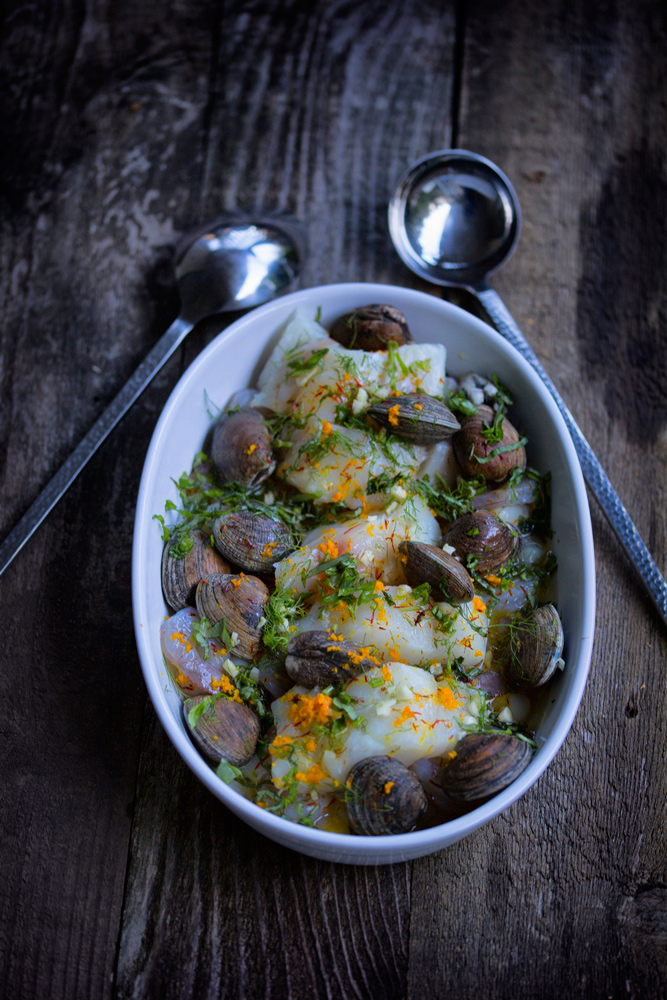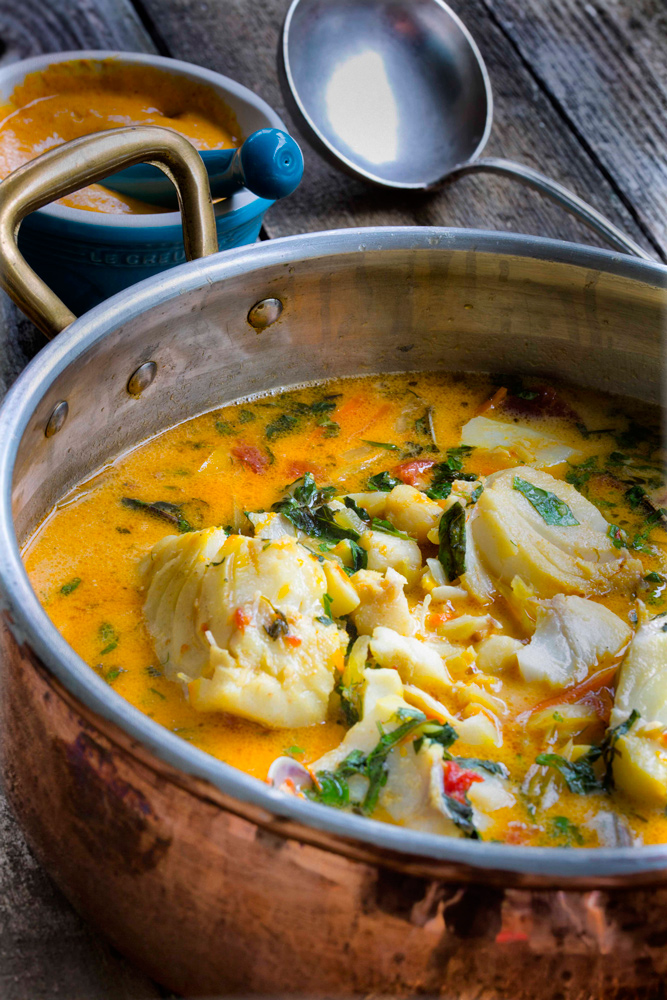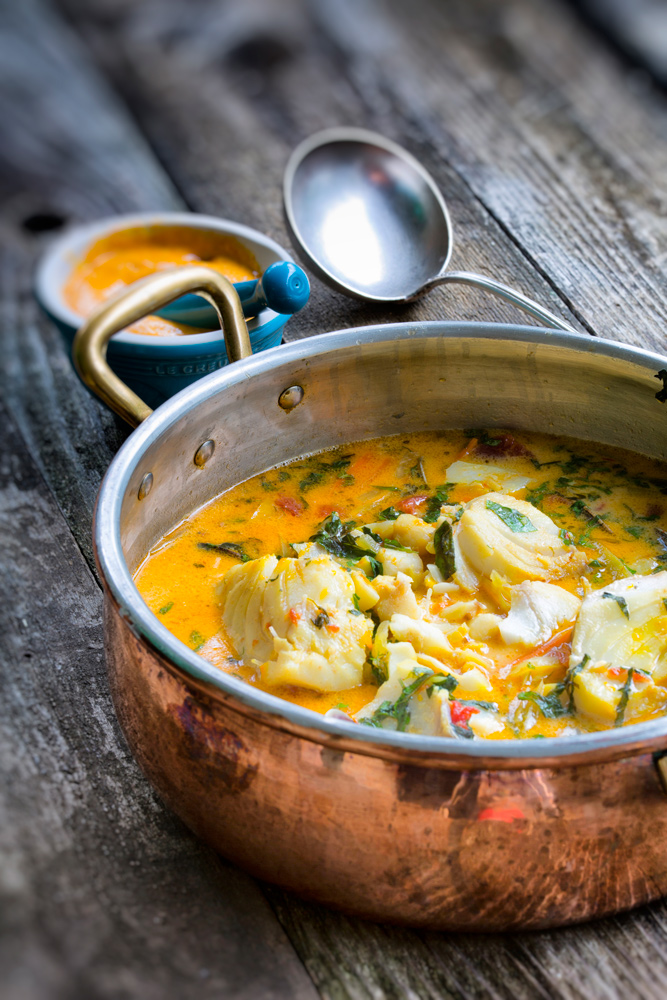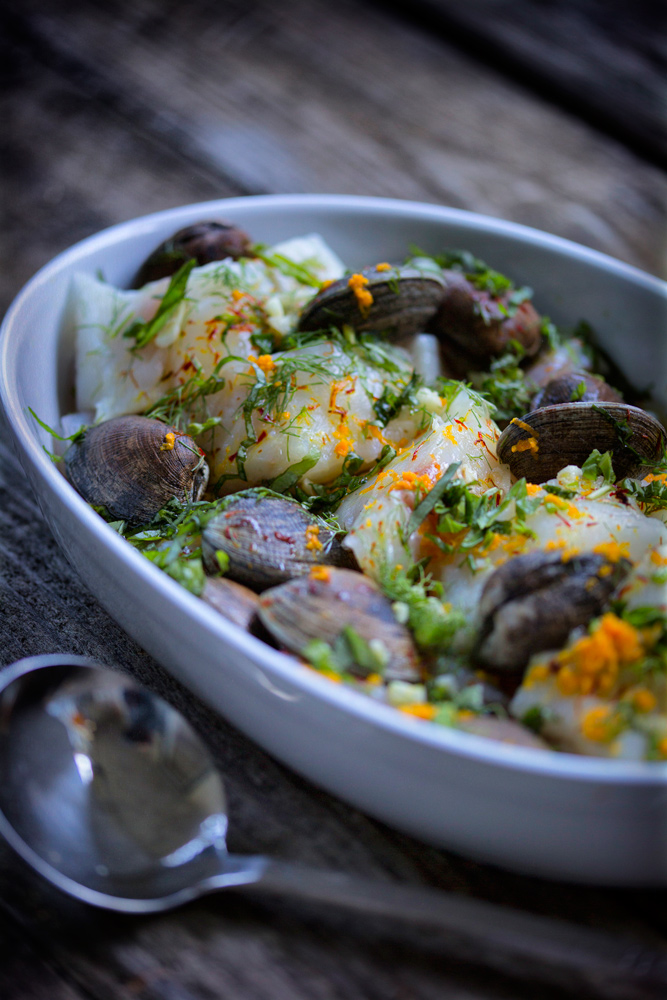Recipe
Bourride - ‘Provencal Sunshine’
Words & photography by Francois de Melogue
The Origins of Bourride
I am surely going to piss off my Marseille family and bouillabaisse purists alike with this one. To put it simply, bourride is bouillabaisse’s troubled half-sister. While they certainly share a common lineage, there are stark characteristics that differentiate the two. Classically, both start with a pureed broth made from onions, fennel, garlic, orange peel, saffron, tomatoes, olive oil and small rockfish.
Eating bouillabaisse is a carefully choreographed religious ceremony, usually requiring 24 hours notice, whose consumption is performed in two sacred rites ending perhaps with genuflexion to the sacred cauldron. Bourride, on the other hand, is more like a courthouse marriage done on a whim over an office lunch break, still a covenant and very satisfying but with far less ceremony and planning.
Bouillabaisse is traditionally served in two courses starting with the broth ladled into warm bowls and served with garlic croutons, shredded Parmesan, rouille and aioli. After seconds are offered, the whole fish poached in the broth are presented to the table, than fileted and served glistening in more broth. Bourride is made from fish filets cooked in the broth and enriched by a liaison of egg yolks and aioli whisked in at the last moment.
According to Alan Davidson in the ‘Oxford Companion to Food’, the first mention of a bouillabaisse-like soup of French origin appears in print in ‘La Cuisine de Santé’ authored by Jourdain Le Cointe in 1790. He describes a scene where fishermen and their wives are on a riverbed boiling a cauldron full of ingredients very reminiscent of bouillabaisse. The recipe given is called ‘Matellote du Poisson’. It’s not until 1830 when ‘Le Cuisinier Durand’ is written that we get a dish actually called bouillabaisse.
I started researching to find the earliest references of bourride and could not find anything earlier than Reboul’s masterpiece ‘La Cuisinière Provençale’ written in 1897. Reboul describes a bouillabaisse made without saffron and thickened with aioli and egg yolks. I tried referencing food dictionaries and saw as many different versions as I had books. Many claim the only true Bourride is made solely with monkfish in a white creamy sauce, possibly flavoured with crushed fish liver. That local variation is properly called Bourride Setoise. I once had a prominent French Chef dining at my restaurant call me to his table to tell me although it was good, what I served was not a true bourride.
I started making Bourride at the behest of Jacob, a lawyer/book dealer customer, at my first restaurant ‘le Margaux’ in 1993. I was in his bookshop looking for rare cookbooks and he told me of his favorite dish and asked if I ever made it. I don’t know why I lied, but I did. I replied with utmost confidence it was a specialty of mine and of course I’d be delighted to make it whenever he could get in. I secretly hoped that day would be far off enough to research and test it a few times. Unfortunately he made reservations for the next night and not only that, he was bringing eleven close friends. Panic struck as I combed through various cook books hoping to find at least two books corroborating the recipe. When I failed in that I figured the oldest book I owned probably was the closest to a true bourride, so I settled on the 1938 version written in the Larousse Gastronomique. I followed the three paragraph recipe with my Provencal mother’s irreverence to measurement and, thankfully, impressed Jacob. I have continued to make Bourride and think of Jacob every single time.
People do not eat methods, they eat results
– Chef Louis Szathmary, 1919 – 1996
Traditionally, bourride is an emulsified fish broth made from small unsellable rock fish thickened with Aioli, but I prefer making a lighter broth and thickening with rouille. Provencal flavours are bolder and more assertive than in other parts of France. Rouille just adds an extra kick of spice I love. I make the broth far lighter by leaving the vegetables julienned and omitting sieved rockfish. A mentor once told me “people do not eat methods, people eat results.” The result is an easy to make and share version of a Provencal classic.
Use whatever fish you can find at your local fish market. I generally like to find at least one meatier fish and some kind of shellfish.
Ingredients
For the marinated fish:
1 codfish, cut in four pieces
1/2 bay scallops
1 Manila clams, scrubbed
1/2 shrimp
60 ml olive oil
2 cloves garlic, chopped
big pinch saffron
small handful basil
1 orange, zested/juiced
60 ml pastis
For the broth:
1/2 fennel bulb, julienned
1/2 onion, sliced
2 thin carrots, julienned
1/2 pepper, julienned
4 cloves garlic, chopped
2 tsp saffron
4 San Marzano tomatoes, chopped
480 ml white wine
950 ml fish broth
120 ml Pastis
For the rouille:
2 egg yolks
2 tsp sea salt
Large pinch saffron
2 tsp sweet paprika
2 garlic cloves
1 tbsp Blis hot sauce
2 tsp red vinegar
120 ml canola oil
To finish:
1 egg yolk
8 new potatoes, boiled/peeled
12 slices baguette, toasted
Method
Place all seafood into a non-reactive bowl and toss with olive oil, garlic, saffron, basil, orange zest and Pastis. Chop any fennel fronds and toss with seafood. Marinate fish overnight.
Sauté fennel, onion, carrots, and pepper in olive oil till soft with no colour, about 5 minutes. Add garlic and saffron and cook until fragrant, about one minute. Add tomatoes, white wine, fish broth and Pastis, bring to a boil then simmer for thirty minutes. Chill broth overnight.
To make the Rouille, put the egg yolks, sea salt, saffron, garlic cloves, hot sauce and vinegar into your food processor and puree till smooth. Slowly add oil until very thick. Adjust seasonings to you taste and chill overnight.
When you are ready to eat:
Bring the broth to a boil, add seafood and cook till done, about ten minutes. Nicely arrange seafood in a serving tureen. Whisk together an egg yolk and 120 ml of Rouille. Ladle in 240 ml of hot fish soup and whisk till smooth and creamy. Whisk the egg mixture into the pot then pour over fish in tureen. Serve with boiled potatoes, toasted French bread, and Rouille.
Enjoy!
